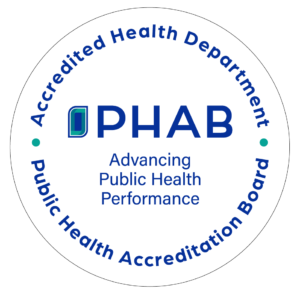Bel Air, MD – January 23, 2013 – With the arrival of frigid winter weather, Harford County Health Department reminds residents to take necessary precautions to prevent serious health and safety concerns. Preparing for exposure to colder temperatures can mean the difference between staying healthy and the possibility of serious injury or even death.
When exposed to cold temperatures, the human body loses heat faster than it generates it. Prolonged exposure to cold eventually uses up the body’s stored energy and can result in a serious condition called hypothermia, characterized by abnormally low body temperature. Hypothermia is most likely to occur at very cold temperatures, but can occur even at temperatures above 40° F, if a person becomes chilled from rain, sweat or submersion in cold water. Harford County Health Officer, Susan Kelly warns, “This condition affects the brain, making victims unable to think clearly or move well. This is particularly dangerous because a person might not be aware of what is happening and may not do anything about it.”
Frostbite is another injury to the body caused by freezing, and results in a loss of feeling and color in affected areas. It most often affects the nose, ears, cheeks, chin, fingers or toes. Frostbite can permanently damage the body, and severe cases can lead to amputation. The risk of frostbite is increased in people with reduced blood circulation and among people who are not dressed properly for extremely cold temperatures.
Cold weather also puts an extra strain on the heart. If you have heart disease or high blood pressure, follow your doctor’s advice about shoveling snow, chopping wood or performing other hard work in the cold. Otherwise, if you have to do active outdoor chores, dress warmly and work slowly. Because the body already is working hard just to stay warm, it is possible to get overheated, as well.
The Health Department recommends the following tips to help keep you and your family safe and healthy during extremely cold weather:
- Try to stay indoors when weather is extremely cold, especially if winds are high.
- If you must go outdoors, make trips outside as brief as possible.
- When going outside during very cold weather, adults and children should wear:
- a hat
- a scarf or knit mask to cover face and mouth
- sleeves that are snug at the wrist
- insulated and waterproof mittens or gloves
- several layers of loose-fitting, thermal wear or material that “wicks” moisture off the skin
- a water-resistant or tightly woven coat
- two layers of socks with boots or shoes that are waterproof and have a flexible sole
Walking on ice is also extremely dangerous. Many cold weather injuries result from falls on ice-covered sidewalks, steps, driveways and porches. Keep your steps and walkways as free of ice as possible by using rock salt or another chemical de-icing compound. Sand or even cat litter may also be used on walkways to reduce the risk of slipping.
To find more cold weather safety tips and to view weekly DHMH Cold Weather Reports posted each Wednesday, visit http://dhmh.maryland.gov/winterrpts or the DHMH homepage at www.dhmh.maryland.gov and click on “Cold Weather Facts” under “Hot Topics.”. More information also is available on the Harford County Health Department website, www.harfordcountyhealth.com .
Additional Resources:
- Food and Water in an Emergency
- Food and Water Safety During a Power Outage
- Fact Sheet – Carbon Monoxide Poisoning Prevention
- Fact Sheet – General Preparedness Tips
- Fact Sheet – Health
- Fact Sheet – Prevention Tips to Avoid Illness from Spoiled Foods
- Fact Sheet – Tips to Deal with Traumatic Events
- Fact Sheet – Cooking without Power
- Fact Sheet – Food Safety Tips
- Fact Sheet – Storm Disaster Survival Tips
- CDC – Winter Preparedness
- Red Cross – Winter Preparedness
- Ready.gov – Winter Preparedness


